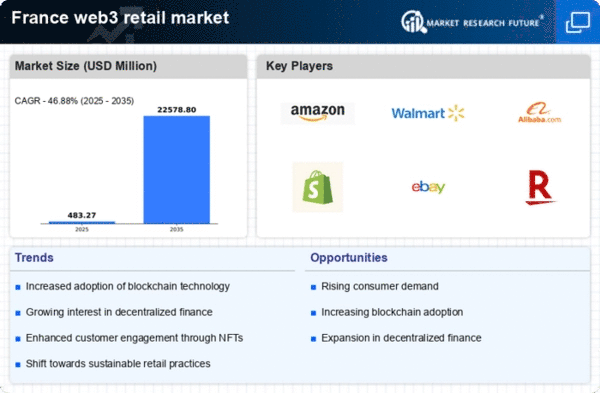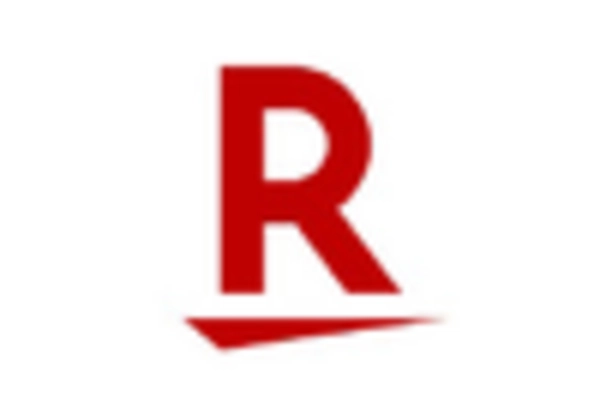Rise of Digital Ownership
The concept of digital ownership is gaining traction within the web3 in-retail market. Consumers are increasingly interested in owning unique digital assets, such as NFTs, which can represent ownership of physical goods or exclusive digital content. In France, the NFT market has seen a surge, with sales reaching approximately €200 million in 2023. This trend indicates a shift in consumer behavior, where individuals are willing to invest in digital assets that provide a sense of ownership and authenticity. Retailers are beginning to leverage this trend by offering products linked to NFTs, enhancing customer loyalty and engagement. As the market evolves, the integration of digital ownership into retail strategies may redefine how consumers interact with brands, potentially leading to increased sales and customer retention.
Adoption of Smart Contracts
Smart contracts are emerging as a transformative technology within the web3 in-retail market. These self-executing contracts facilitate transactions without the need for intermediaries, thereby reducing costs and increasing efficiency. In France, the adoption of blockchain technology is on the rise, with a reported 30% of retailers exploring smart contract applications in their operations. This trend suggests that retailers are recognizing the potential of smart contracts to streamline supply chains, enhance transaction security, and improve customer experiences. As more businesses integrate this technology, the web3 in-retail market may witness a significant shift towards automation and transparency, ultimately benefiting both retailers and consumers.
Increased Focus on Data Privacy
Data privacy concerns are becoming paramount in the web3 in-retail market, particularly in France, where consumers are increasingly aware of their digital footprints. The implementation of the General Data Protection Regulation (GDPR) has heightened expectations for data security and transparency. Retailers are now compelled to adopt decentralized solutions that prioritize consumer privacy, allowing customers to control their data. This shift not only builds trust but also aligns with the values of a growing segment of the population that prioritizes ethical consumption. As a result, retailers that successfully implement privacy-centric strategies may gain a competitive edge, potentially capturing a larger market share in the evolving landscape of the web3 in-retail market.
Integration of Augmented Reality
The integration of augmented reality (AR) technology is becoming increasingly relevant in the web3 in-retail market. Retailers in France are exploring AR as a means to enhance the shopping experience, allowing consumers to visualize products in their own environments before making a purchase. This technology not only improves customer engagement but also reduces return rates, as consumers are more likely to be satisfied with their purchases. Reports indicate that retailers utilizing AR have seen a 20% increase in conversion rates. As AR continues to evolve, its application within the web3 in-retail market may redefine how consumers interact with products, potentially leading to a more immersive and personalized shopping experience.
Emergence of Decentralized Marketplaces
Decentralized marketplaces are gaining momentum in the web3 in-retail market, offering an alternative to traditional e-commerce platforms. These marketplaces enable peer-to-peer transactions, reducing reliance on centralized entities and associated fees. In France, the rise of platforms that facilitate decentralized trading is indicative of a broader shift towards consumer empowerment. Retailers are beginning to explore these platforms as a means to reach niche markets and engage directly with consumers. This trend may lead to a more diverse retail landscape, where smaller brands can thrive alongside established players. The potential for lower transaction costs and increased accessibility could reshape the competitive dynamics within the web3 in-retail market.

















